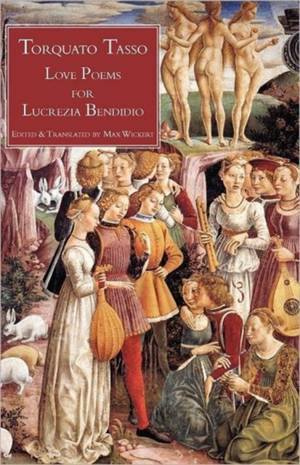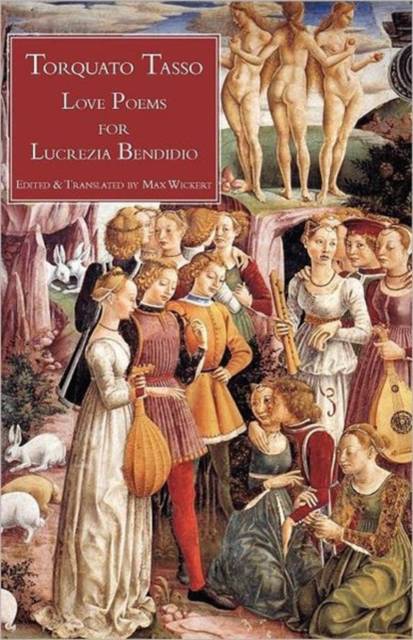
Bedankt voor het vertrouwen het afgelopen jaar! Om jou te bedanken bieden we GRATIS verzending (in België) aan op alles gedurende de hele maand januari.
- Afhalen na 1 uur in een winkel met voorraad
- In januari gratis thuislevering in België
- Ruim aanbod met 7 miljoen producten
Bedankt voor het vertrouwen het afgelopen jaar! Om jou te bedanken bieden we GRATIS verzending (in België) aan op alles gedurende de hele maand januari.
- Afhalen na 1 uur in een winkel met voorraad
- In januari gratis thuislevering in België
- Ruim aanbod met 7 miljoen producten
Zoeken
Omschrijving
"In this book, Love emerges from confusion even as, in the description of the ancient poets, he sprang from the womb of Chaos. And although it is many years old, and of an earlier date than all my others, it is eminently youthful in appearance and hopes to please like a thing newmade."
- Torquato Tasso Torquato Tasso (1544-95), the renowned author of the epic, "Gerusalemme liberata," and of the pastoral drama, "Aminta" (Italica Press, 2000), was also a great and prolific lyric poet. When he was still in his teens, he fell in love with Lucrezia Bendidio, a noted beauty and singer at the court of Ferrara, and wrote the first one-hundred-and-twenty of his five hundred love poems for her. These lyrics, collected as "Rime Amorose," Book One, by Tasso's nineteenth-century editor, Angelo Solerti, are here restored to the order that Tasso himself gave them when he oversaw Francesco Osanna's 1591 edition, which he considered definitive. Max Wickert has edited the Italian texts, with his new English verse translations on facing pages. In his Introduction, he outlines the process of Tasso's successive rearrangements and analyzes some of the key themes in these poems. The poems themselves are accompanied by detailed explanatory notes, including a selection of those made by Tasso himself. Critical acclaim for Max Wickert's
"The Liberation of Jerusalem"
"Wickert's is a remarkable achievement....The translation is consistently faithful to almost every detail of the content [and] successfully recreates much of the distinctive structure of Tasso's language and its complex interrelation with the metre."
- David Robie, "Times Literary Supplement" "Wickert's fine translation captures both the dignity and the energy of Tasso's epic, its artfulness and its passion."
- Carl Dennis, Pulitzer Prize for Poetry, 2002 "I would have guessed from Max Wickert's sonnets that his handling of ottava rima would be strong and fluent. As indeed it is. I can't imagine a translation reading any better: everywhere easy, natural, idiomatic, taking the demanding rhyme scheme with no strain at all. A great 'read.'"
- John Frederic Nims, former Editor, "Poetry" (Chicago) About the Editor and Translator:
Max Wickert is the author of several volumes of verse and of "The Liberation of Jerusalem," a rhymed translation of Tasso's "Gerusalemme liberata," published by Oxford University Press in 2009. He has taught for many years at the University at Buffalo, NY. First English translation.
Dual-Language Poetry.
Introduction, chronology, bibliography, notes, appendices, first-line index.
294 pages.
Specificaties
Betrokkenen
- Auteur(s):
- Uitgeverij:
Inhoud
- Aantal bladzijden:
- 296
- Taal:
- Engels
- Reeks:
Eigenschappen
- Productcode (EAN):
- 9781599102634
- Verschijningsdatum:
- 5/09/2011
- Uitvoering:
- Paperback
- Formaat:
- Trade paperback (VS)
- Afmetingen:
- 140 mm x 216 mm
- Gewicht:
- 376 g

Alleen bij Standaard Boekhandel
+ 67 punten op je klantenkaart van Standaard Boekhandel
Beoordelingen
We publiceren alleen reviews die voldoen aan de voorwaarden voor reviews. Bekijk onze voorwaarden voor reviews.









